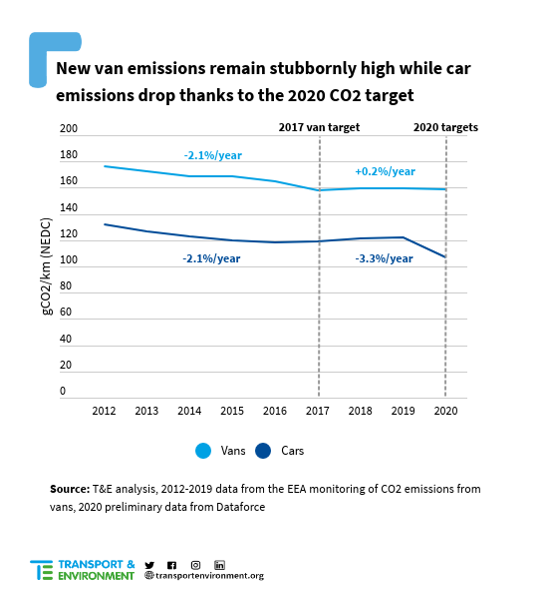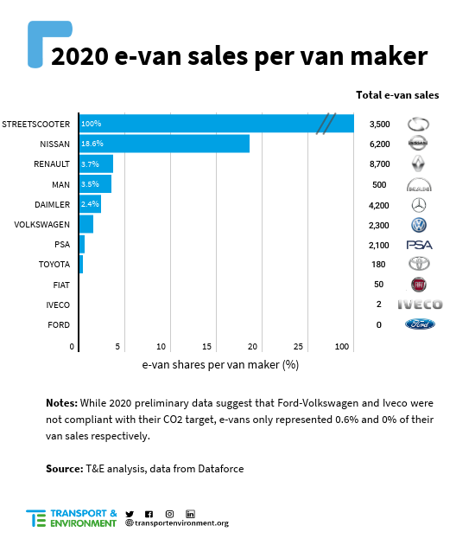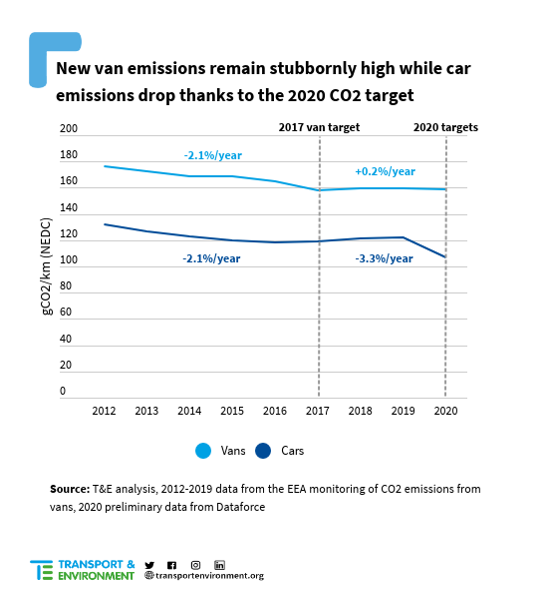Emissions from light commercial vehicles (LCVs), classified as vans up to 3.5 tonnes, should be subject to emissions limits similar to those for passenger cars. However, while stringent CO2 targets helped reduce car emissions, the van targets have been ineffective. Van sales have surged in recent years, making vans the fastest-growing source of road transport emissions in the EU.
With the European Commission preparing to revise the current CO2 standards for vans, Transport & Environment (T&E) released a comprehensive 72-page analysis of van market data titled ‘European van market unplugged: how weak regulation is failing electrification.’ The report reveals that while electric car sales have surpassed 10%, less than 2% of vans sold are electric vehicles.
CO2 emissions from vans were just under 180 g/km in 2012 and slowly decreased to meet the EU’s 2017 target, dropping to just below 160 g/km. Despite new targets introduced in 2020, EU van emissions have stagnated.

T&E’s freight manager, James Nix, stated, “Electric vans are both economically and environmentally sound, yet van manufacturers lack sufficient incentive to sell them. This leads to unnecessary pollution. The standards that came into effect last year were supposed to make vans cleaner, but manufacturers have had to do very little to comply. In the case of Volkswagen, emissions have actually increased. With such weak CO2 targets, the e-commerce boom is becoming a problem for the planet.”
According to T&E’s analysis, current trends suggest e-van sales will remain between 2% and 8% until 2029 unless the EU strengthens vehicle CO2 targets. This is despite the fact that smaller e-vans already offer lower ownership and operating costs. A recent study commissioned by T&E indicated that all electric vans, regardless of size, will be more affordable to purchase by 2026.

T&E is advocating for the current weak 2030 target to be moved up to 2027, representing a 31% reduction, with a steady increase through 2035. Additionally, a sales target for e-vans is deemed necessary.
Renault is at the forefront of e-van sales, having sold 8,600 of its electric Kangoo models in 2020, followed by the Nissan NV200 with 6,200 e-van sales. However, only a small portion of sales from other van manufacturers are electric vehicles.



